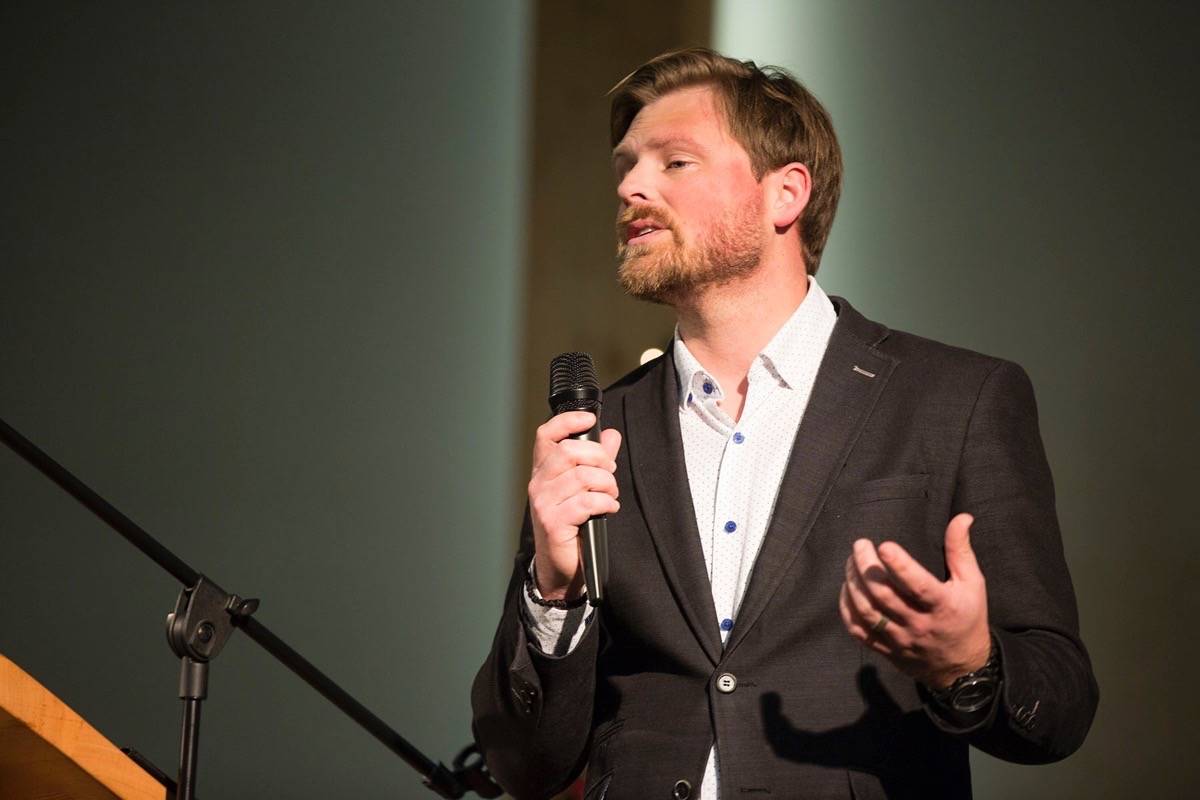About 20 people came out to an Opioid Awareness Community Discussion hosted by The Mustard Seed and Turning Point at City Chapel Monday night.
Guest speaker Landon Hildebrand, director of housing and clinic development at The Mustard Seed Edmonton and a psychologist, talked about the different ways organizations are responding to the opioid crisis in Canada that kills, on average, two Albertans a day, he said.
Some of the solutions involve reducing the stigma on those suffering from addiction and treating patients with harm reduction strategies, which improves understanding of addiction and the ways to treat it, he said.
“We need to identify people suffering from addiction as whole people,” he said. “We can’t say that they are making mistakes, that they are unfixable, or all these negative connotations and words that we often use. We have to use words that are inclusive and that are people first. As soon as we do that, we begin to meet people where they are at and we begin to have an actual conversation.”
Hildebrand discussed harm reduction in length.
Harm Reduction aims to reduce drug-related harm without requiring individuals to stop using drugs, he explained.
Some new harm reduction strategies to prevent opioid overdose-related deaths, include administering naloxone, safe injection sites, drug checking services and opioid substitution therapy.
He explained that harm reduction allows those treating individuals suffering from addiction to engage with them in a way that addresses the challenges they face and begin to address the root causes.
“Harm reduction puts primacy on life and that person and on keeping them alive,” he explained. “The emphasis is on life over sobriety, not the fact that you have to be sober to access these services.”
Harm reduction allows those treating individuals suffering from addiction to, “Get down into the mess of it all,” he said. “To dwell with people and show that they are human and treat them like they are human.
“It requires us to build relationships,” he continued. “Building relationships is the most important part of harm reduction. You have to have a relationship with the people.”
The event also featured a video about the life of someone who overcame her addiction to opioids and a demonstration on how to use a naloxone kit. The demonstration was followed by a question and answer period.



